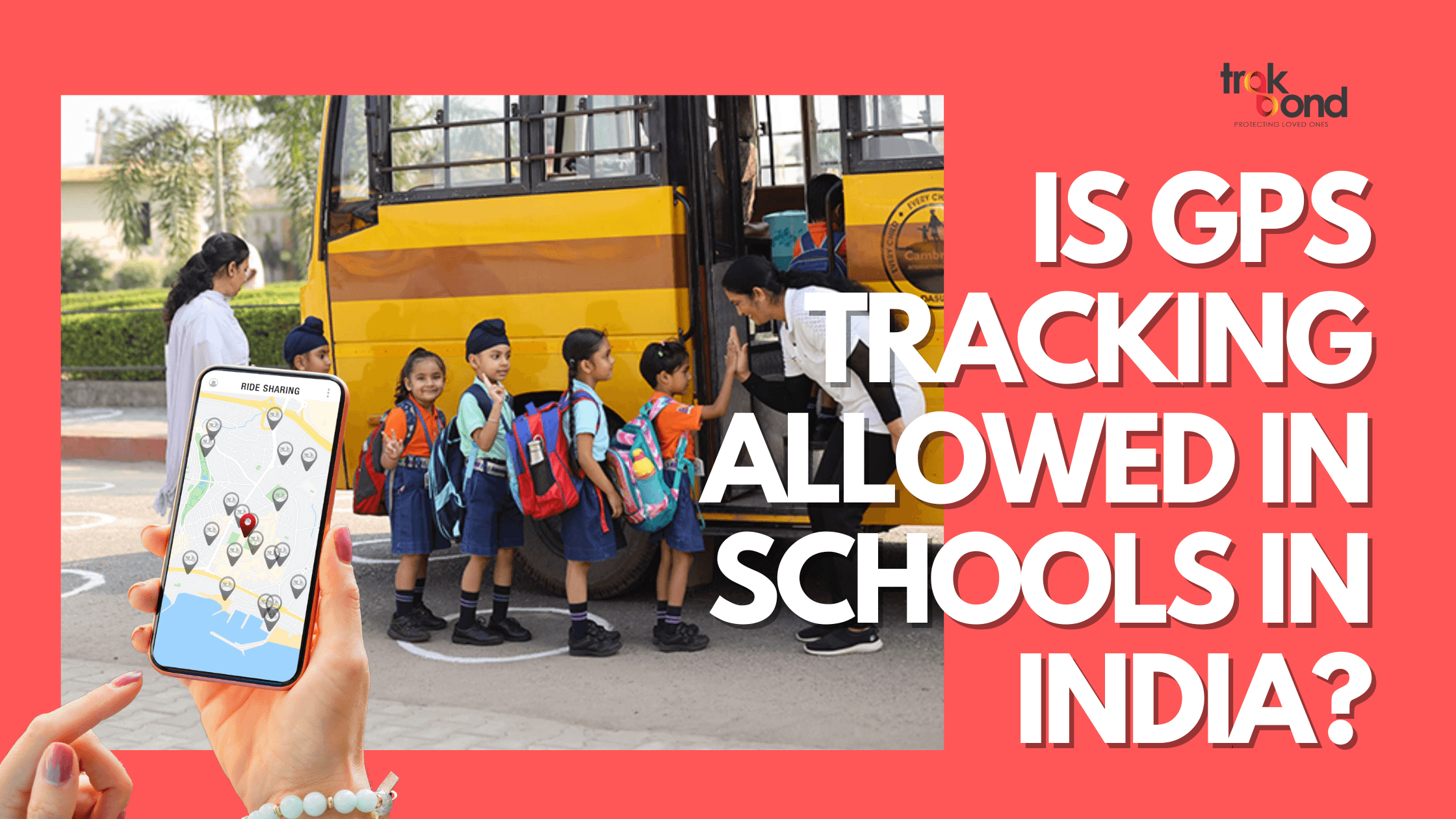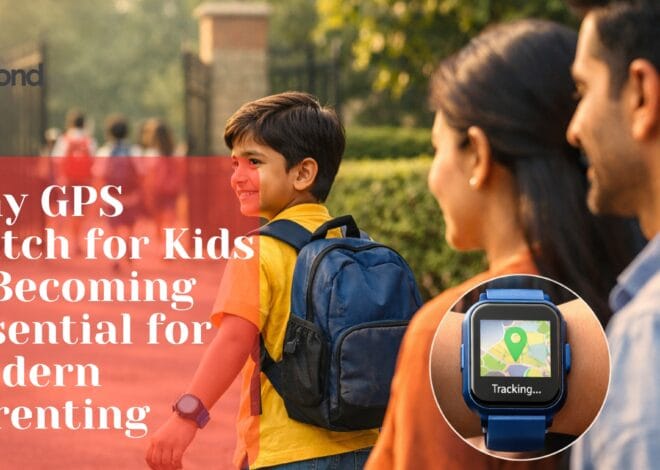
Is GPS Tracking Allowed in Schools in India?
With rising concerns about student safety — particularly during transport — many schools in India are installing GPS trackers in school buses (and sometimes on students or staff). But is this legally permitted? And ethically sound? Let’s unpack the legal framework, ethical issues, recent developments, and how GPS tracking can be used responsibly.
Legal & Regulatory Landscape
Relevant Laws and Standards
- AIS-140 Standard
The Automotive Industry Standard 140 (AIS-140) issued by the Ministry of Road Transport & Highways requires certain public transport/commercial vehicles (including school buses) to be equipped with GPS/vehicle tracking devices, emergency (SOS/panic) buttons, real-time data transmission etc.
This means for school buses (commercial-purpose passenger carrying) there is a legal mandate.
- CBSE Transport Guidelines
The Central Board of Secondary Education (CBSE) has made it mandatory for school buses under its affiliation to have GPS tracking, CCTV, speed governors, etc., as part of the safety rules. - State Government Resolutions / Rules
Some states are issuing rules making GPS trackers mandatory in school buses. For example, Maharashtra recently passed a government resolution (GR) mandating GPS in school buses, background checks, etc. - Privacy Law: Digital Personal Data Protection Act, 2023 (DPDP Act; sometimes called DPDPA)
India passed the Digital Personal Data Protection Act, 2023, which regulates how “digital personal data” may be collected, stored, processed, transferred etc. Under this Act, location data qualifies as personal data if a person is identifiable.
Schools, or vendors processing such data, are “data fiduciaries” and have obligations: lawful basis (consent or other legitimate purpose), transparency, purpose limitation, data minimization, security, etc.
- Right to Privacy under the Constitution
The Supreme Court of India in K. S. Puttaswamy vs Union of India has held that privacy is a fundamental right under Article 21. Tracking (especially continuous location tracking) can infringe on privacy if not properly justified, proportionate, or consented.
What is Permitted vs What Raises Legal/Privacy Issues
- Permitted (legally required or allowed):
• GPS & related tracking devices in school buses under AIS-140 and CBSE/State rules.
• Real-time monitoring of the bus location, driver behaviour, route, emergency alert (SOS/panic). - Areas of concern (or where explicit legal basis is weaker):
• Tracking students personally (e.g. wearable trackers, devices on the child outside bus transit) without clear parental consent or policy.
• Using GPS tracking beyond safety / transport purposes (e.g. monitoring pupils in class, tracking outside school hours).
• Lack of secure handling of location data (storage breaches, sharing with third parties without consent, etc.).
Ethical Considerations
Even where legal, GPS tracking raises ethical questions:
- Consent and Choice: Are parents/students aware, do they consent? Is there transparency?
- Proportionality: Is the tracking strictly for safety & transport? Is continuous location monitoring justified?
- Data Minimization: Only collect what is needed (e.g. bus route, arrival times), not extra sensitive movement data.
- Purpose Limitation: Use the data only for safety, emergencies, transport logistics — not for punitive surveillance.
- Data Security & Retention: Secure storage, controlling access, deleting data when no longer needed.
- Autonomy & Trust: Too much surveillance can erode trust, sense of autonomy for students/staff.
Recent Developments
- Several states (e.g. Maharashtra) have made GPS trackers mandatory in school buses and made other safety norms (background checks, etc.) compulsoryEnforcement of AIS-140 has been tightened; vehicles (school buses, public transport) must comply with AIS-140 GPS device mandates, SOS buttons, etcCBSE’s transport guidelines have reinforced GPS, CCTV, etc. as mandatory safety measures.
FAQ
Q1. Is it legal to install GPS trackers in school buses in India?
Yes — in many cases it is mandatory. Under AIS-140, public transport/commercial vehicles (which include school buses) are required to have GPS trackers. Moreover, CBSE and state boards/schools have made GPS + CCTV compulsory under safety guidelines.
Q2. Can schools track individual students (wearables, backpacks) using GPS?
This is more legally and ethically sensitive. It would likely require explicit parental consent, a clear policy, ensuring compliance with data protection laws (DPDP Act), and the purpose must be legitimate and proportionate. There is less direct legal mandate for tracking students themselves outside of transport safety.
Q3. What laws protect privacy in this context?
Primarily:
- The DPDP Act, 2023 (for digital personal data handling)
- The constitutional right to privacy (Puttaswamy judgement)
- Motor Vehicles & Transport (AIS-140) rules that mandate tracking for safety, with regulated equipment.
Q4. What happens if a school violates privacy (e.g. misuse GPS data)?
Potential consequences could include legal liability under data protection law (or forthcoming rules), complaints by parents, regulatory action, reputational damage, or even legal claims under the right to privacy.
Q5. Are there penalties if a school bus is not AIS-140 compliant?
Yes. Non-compliance can result in penalty fines, suspension of permit, failing fitness tests for the vehicle, etc. Enforcement by RTOs and transport authorities is increasing.
How to Use GPS Tracking Respectfully — Checklist
If a school or service (like Trakbond) wants to implement GPS tracking in a way that is legal and ethically responsible, here’s a checklist to follow:
| Step | Action |
| 1. Define Clear Purpose | Identify precisely why you need tracking (route safety, preventing bus delay, emergency alerts) and restrict its use to that purpose. Avoid using for punishment or continuous monitoring outside transport. |
| 2. Legal Compliance | Ensure compliance with AIS-140 (if applicable), CBSE or state board rules, and DPDP Act. Use certified GPS devices; ensure device features (e.g. SOS) are properly implemented. |
| 3. Consent & Transparency | Obtain written informed consent from parents/guardians for any tracking that involves students. Publish a policy that explains what is being tracked, who sees the data, how long it is stored, etc. |
| 4. Data Minimization | Limit location data collection to what is necessary (bus route, stops) and avoid tracking outside required times. Discard or anonymize old data. |
| 5. Secure Data Handling | Protect data with encryption, restrict access, use secure servers, audit data use. Ensure data shared only with those who need it (school authority, parents, emergency responders). |
| 6. Accountability & Oversight | Assign responsibility (e.g. school transport manager) for monitoring the use of tracking. Periodic audits. Give parents/students a way to raise concerns. |
| 7. Emergency Protocols | Define what happens in emergencies: how alerts are handled, what actions are triggered. Ensure SOS/panic buttons are functional and monitored. |
| 8. Training & Awareness | Train drivers, bus staff, school officials on privacy, on how the tracking system works, what it does not do, and what their responsibilities are. Inform students and parents. |
| 9. Retention & Deletion Policy | Set clear rules for how long historical location data is stored. Delete or anonymize older data unless retention is required by law or for safety investigations. |
| 10. Review & Feedback Mechanism | Regularly review how the system is working; collect feedback from parents, students, staff. Adapt policy to fix issues. |
Conclusion
- Yes, GPS tracking of school buses is largely legal and in many cases mandatory in India (educated by AIS-140, CBSE, state regulations).
- But, tracking students individually (especially continuously outside transport) is more sensitive, and one must carefully manage privacy, consent, and ethical use.
- Schools and tech providers like Trakbond should follow legal standards, adhere to ethical principles, and use tracking systems in ways that enhance safety without infringing rights.



